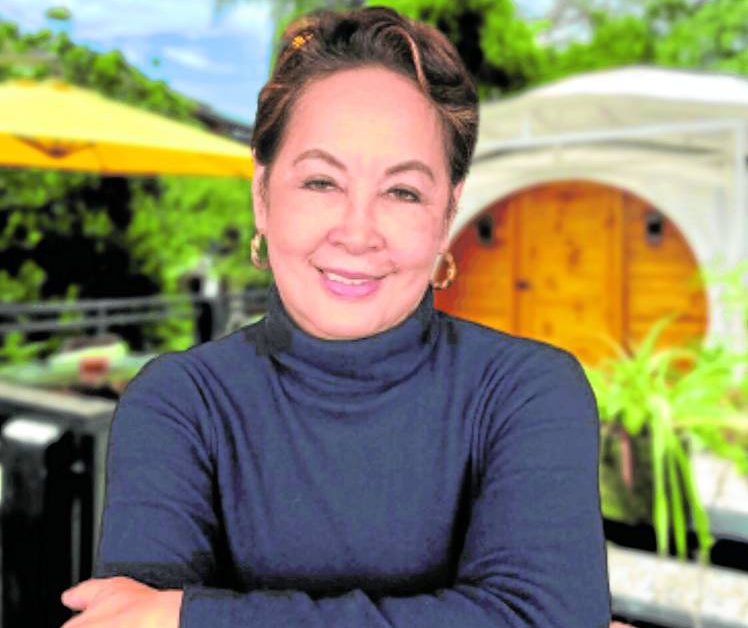Naturopathy: How effective are drugless, nonsurgical remedies?

When wives can’t get pregnant, they consult Elizabeth Micaller, a naturopath—a practitioner who recommends drugless and nonsurgical remedies.
“The couple must agree that they want a child,” explains Micaller. “If a partner resists even subconsciously, it can’t happen. Usually, it’s the wife who is intimidated by the responsibility of sustaining the new life. We follow naturopath protocols—examining the emotions and freeing them, detox and lifestyle changes. Within a quarter, they get pregnant.”
Then there was an early case of a family who complained of psoriasis. A licensed iridologist—a practitioner who examines the patient’s eyes to detect an ailment—Micaller read their irises and discovered that their colons were clogged. The toxins were coming out of their skins. After a series of colon cleansing sessions, a change of diet and developing a positive attitude, their skins cleared up.
Based on the concept of the body as an integrated system, naturopathy embraces natural treatments that aim to address the underlying source of an illness. This rounded discipline is grounded in traditional healing practices such as herbology, hydrotherapy, energy healing, nutrition with modern methods such as counseling, iridology and advanced diagnostic tools.
Blazing the trail
In the past 40 years, Micaller has made it her mission to promote natural healing and professionalize standards in its education. It all began in 1982 when she established a networking company that promoted natural food supplements made from sea vegetation. Customers then started asking questions about health, which prompted her to research on natural healing.
Since there were no schools on alternative medicine in the Philippines back then, Micaller went to the United States to enroll in the Naturopath Doctor (ND) program at the International Society of Naturopathy in Los Angeles.
“Naturopathy is the first healing modality the 4th century BC in the time of Greek physician Hippocrates,” explains Micaller. Pharmaceutical medicine, which emerged in the 19th century, now dominates our healing procedures, she says.
“Naturopathy follows basic laws of healing. While medications have been scientifically proven, they usually relieve the symptoms of the ‘dis-ease.’ Naturopathy looks at the root cause of the problem.”
Micaller also took up related courses in Natural Nutrition at Harmony College of Applied Sciences and Nutritional Medicine at the John F. Kennedy College of Nutrimedical Arts and Sciences. She completed iridology at the College of Oriental Medicine in Hawaii.
Drugless and nonsurgical
As the number of her clients increased, she realized that it was time to share her knowledge. With the help of mentors and colleagues, she established the Philippine Institute of Naturopathic Science (PINS), one of the first schools to be accredited by the Philippine Institute of Traditional and Alternative Health Care (PITAHC). It is an agency under the Department of Health, which ensures the quality of alternative and complementary health care.
“Our students come from different backgrounds—networkers, healthcare practitioners and medical doctors who want to find other ways to heal patients. They want to help others without use of expensive medication. Majority of our population has almost no budget for their health concerns. They tend to seek a natural way to heal themselves,” she says.
Micaller cites the dramatic case of a lady who needed dialysis and a possible kidney transplant. She refused medication and surgery because the prohibitive costs would deplete the family’s savings. Moreover, there was no guarantee that her condition would be cured.
The medical director of PINS, who was also a naturopath, invited her to the clinic. The patient underwent an iridology test wherein the characteristics of the iris are examined to determine the state of the systems.
“By law, a naturopath doesn’t diagnose or prescribe medication,” maintains Micaller.
“Iridology is one of our analytical tools. Her iris revealed that the kidneys were inherently strong and that lifestyle habits caused their breakdown. The patient agreed to make lifestyle changes and the whole family joined her in her healing journey. Various food supplements, a clean and balanced diet, proper sun exposure, pure water, moderate exercise and emotional healing were adopted. Energy healing encouraged a healthy flow of energy. Every month, her blood tests showed marked improvement. In 18 months, her kidneys became healthy. This shows that the body regenerates when you give it an opportunity,” she explains.
Legit
To be a legitimate natural healthcare practitioner in the Philippines, the individual must meet PITAHC’s requirements of 1,500 hours or two years of instructional learning and clinical practice from a licensed naturopath.
PINS has been accredited by the American Naturopathy Association, founded in 1919, by Dr. Benedict Lust, the Father of Naturopathy.“Our graduates are qualified to take the naturopathic degree in the USA and be recognized there, too. Many locally licensed naturopaths have enrolled with PINS to get a rounded education which they did not receive in other schools,” says Micaller.
Naturopathy or natural healing practices are expected to become more popular because there are less side effects compared to allopathic medicine. “More people have opened their minds to natural healing and are making happy and fruitful changes in their lives,” she says. —CONTRIBUTED INQ
PINS is located at Nourish Well Being Eco Paradise Building, Pagolingin Bata, Lipa, Batangas; tel. +63906-1905856; visit pins88.org.















